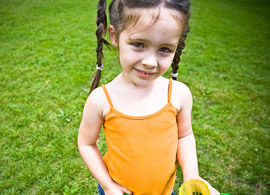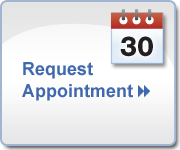Pediatric Dentistry
 A child's first visit to the dentist should be enjoyable and positive. The more you and your child know about the first visit, the better you will feel. Children are not born with a fear of the dentist, but they can fear the unknown. Our office makes a practice of using pleasant, non-frightening, simple words to describe your child's first dental visit and treatment. We want you to feel at ease from the moment your family arrives at our office.
A child's first visit to the dentist should be enjoyable and positive. The more you and your child know about the first visit, the better you will feel. Children are not born with a fear of the dentist, but they can fear the unknown. Our office makes a practice of using pleasant, non-frightening, simple words to describe your child's first dental visit and treatment. We want you to feel at ease from the moment your family arrives at our office.
According to the American Academy of Pediatric Dentistry (AAPD), children should visit the dentist by their first birthday. It is important that your child's newly-erupted teeth (erupting at 6-12 months of age) receive proper dental care and benefit from proper oral hygiene habits right from the beginning.
To prepare for your child's visit, we have created an activity kit to familiarize your child with their teeth and help them look forward to their dental visit.
» Getting to know your teeth is fun! Get comfortable with your teeth with our Dynamite Dental Fun Kit.
When New Teeth Arrive
Your child's first tooth erupts between ages 6-12 months and the remainder of their 20 primary or "baby" teeth typically erupt by age 3. During this time, gums may feel tender and sore, causing your child to feel irritable. To help alleviate this discomfort, we recommend that you soothe the gums by rubbing a clean finger or a cool, wet cloth across them. You may also choose to make use of a teething ring.
Your child's primary teeth are shed at various times throughout childhood, and their permanent teeth begin erupting at age 6 and continue until age 21. Adults have 28 permanent teeth, or 32 including wisdom teeth.
Adopting Healthy Oral Hygiene Habits
As new teeth erupt, examine them every two weeks for lines and discoloration caused by decay. Remember that sugary foods and liquids can attack a new tooth, so take care that your child brushes their teeth after eating or drinking. We recommend brushing three times a day for optimum oral hygiene: after breakfast, lunch and before bedtime. Brushing can be fun, and your child should brush as soon at their first tooth arrives. When a baby's tooth erupts, parents should brush the tooth with a soft-bristled toothbrush and a pea-sized amount of non-fluoridated toothpaste. We suggest reviewing proper tooth brushing procedures with your child.
Flossing is also a part of good oral hygiene habits, and Dr. Carol will discuss with you the right time to start flossing.

